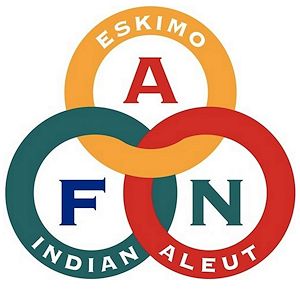Updates from the 2017 Alaska Federation of Natives conference:
“You’re about to witness history in the making,” said Alaska Federation of Natives (AFN) General Counsel Michelle Borromio, addressing the audience last Thursday.
The nation’s first compacting agreement between tribes and a state government was signed on the opening morning of the AFN Convention, after Alaska Governor Bill Walker and Lieutenant Governor Byron Mallott gave speeches about the urgent need to address social and economic problems in rural parts of the state.
Signed by the Governor and at least 17 tribes, the compact allows the state to yield authority to tribes to deal with cases where children are taken into state custody. More than 60 percent of those children are Alaska Native, and the state is woefully short of facilities to deal with them, particularly foster homes.
 Under the compact, the tribes get state resources to deal with these cases in what everyone hopes will be more culturally sensitive ways. State Health and Human Services Commissioner Valerie Davidson, originally from the village of Kwigillingok, is one of several dozen people, most of them women, who have been deeply involved in a year of intense behind-the-scenes negotiations on the compact.
Under the compact, the tribes get state resources to deal with these cases in what everyone hopes will be more culturally sensitive ways. State Health and Human Services Commissioner Valerie Davidson, originally from the village of Kwigillingok, is one of several dozen people, most of them women, who have been deeply involved in a year of intense behind-the-scenes negotiations on the compact.
“It’s about our children,” she said repeatedly, which was made clear after the signing when reporters asked Davidson why the compact was important to her. After a long pause, she asked them to think of it from a child’s point of view.
“And so, imagine being in the most challenging situation of your life,” said Davidson. “That’s very traumatic, that’s very scary, and you are having to use a language that is not your own to be able to talk openly and freely about what your family is experiencing.”
Some tribal organizations are already handling custody cases under the Indian Child Welfare Act. Richard Peterson chairs the Tlingit-Haida Central Council and said Wednesday that the agreement “moved him to tears. That this is tribal recognition.”
“Putting the power in the tribe’s hands and recognizing that we have the wherewithal to take care of our children and restore our families,” said Peterson, who also chairs Governor Walker’s Tribal Advisory Commission.
Peterson said that this agreement points the way toward future tribal compacting agreements on other state programs, including transportation, education, and other areas, because it can be more efficient and save the state money.
Earlier in the day, the appointment of an Alaska Native to head the Bureau of Indian Affairs was greeted with enthusiastic applause when it was announced by Interior Secretary Ryan Zinke in a pre-recorded video.
“President Trump has announced Tara Sweeney as my Assistant Secretary of Indian Affairs. As you know, Tara Sweeney served in the Alaska Federation of Natives Board, and I’m proud to nominate her as the first ever Alaska Native person confirmed to any Senate Confirmed position,” said Zinke.
Sweeney, an executive with the Arctic Slope Regional Corporation, said that it was an honor to be nominated.
“And I hope that if confirmed, I will represent Alaska and the Native American community well,” said Sweeney.
In a morning keynote speech, Sergeant Jody Potts, Village Public Safety Director for the Tanana Chiefs Conference, described going out hunting caribou for her family before delivering a plea to both tribal councils and Native corporation boardrooms to reflect on the values handed down of respecting the land, the people, and their way of life.
“We need the courage from our leaders to say ‘No, we’re not going to develop in the Arctic Refuge, at the birthing ground of the caribou,” said Potts. “We’re going to protect the Arctic Refuge, we’re gonna protect Bristol Bay and the watershed of the salmon. That’s who we are: we are protectors. We are defenders of our way of life and our land.”
Panels on social justice and tackling the opioid epidemic in all Alaskan Native communities followed later Thursday, along with a speech from Don Benton, a Washington State Senator who ran Donald Trump’s transition team and now heads the Selective Service. Benton asked for help getting the word out to the 41 percent of Alaska’s young men who have not registered for the draft.
